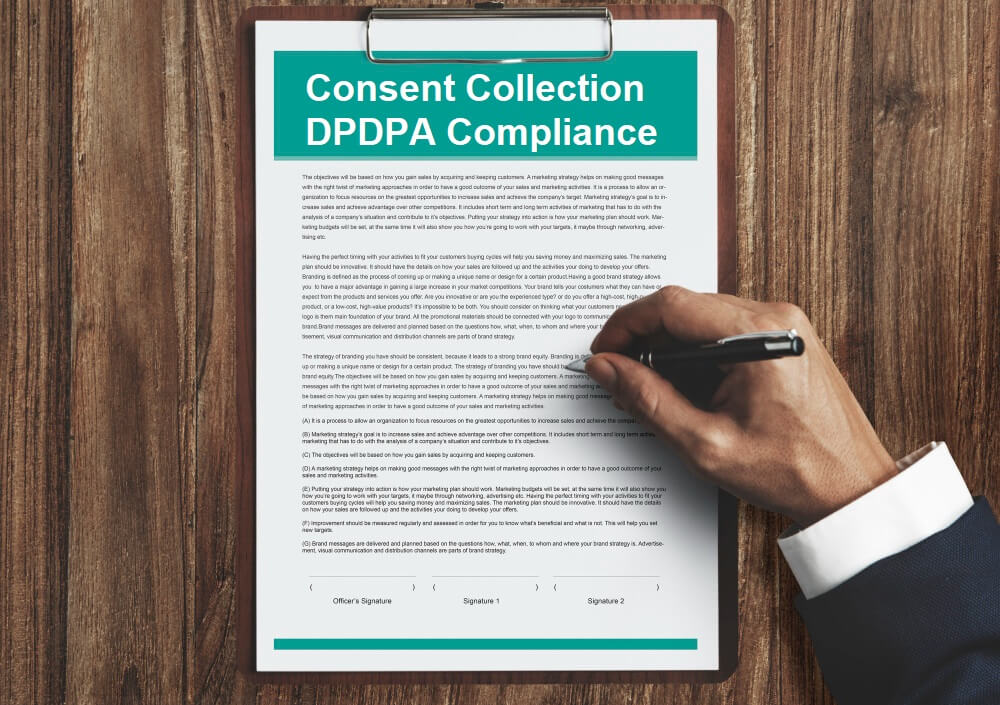The Digital Personal Data Protection Act (DPDPA) represents a significant step in the realm of data protection and privacy. This legislation focuses on safeguarding personal data in the digital age, mirroring global trends toward stronger data privacy laws. The bill mandates strict guidelines for the collection, storage, and processing of personal data by entities, ensuring that individuals have greater control over their personal information. This blog explores the details of Consent Management API for DPDPA Compliance.
Consent Management Requirements
Under the DPDPA, consent management is a critical component. Entities must obtain explicit, informed consent from individuals before collecting or processing their personal data. Consent management involves clearly communicating the purpose of data collection, the type of data collected, and how it will be used. Organizations must design and implement robust consent management systems to comply with these requirements.
Problems for Companies with Existing IT Systems
The introduction of DPDPA poses challenges for companies, especially those with legacy IT systems in mobile and web applications. These systems may not be equipped to handle the nuanced requirements of consent management under the new law. Companies must assess their current systems and determine what changes are necessary to ensure compliance.
Understanding Where Consent Management is Required
Consent management is necessary at every point where personal data is collected or processed. This includes online forms, mobile apps, and web applications. Companies must identify all these points and ensure that they have mechanisms in place to manage consent effectively.
Getting a Consent Management Service Provider
Many companies may opt to engage a Consent Management Service Provider (CMSP) to streamline compliance. A CMSP specializes in managing consent collection, storage, and documentation, ensuring that the company’s processes align with DPDPA requirements.
Creating Purpose, Data Subjects, and Consent Collection Points
A critical step is defining the purpose for data collection, identifying the data subjects (individuals from whom data is collected), and establishing clear consent collection points. This involves creating transparent data collection forms and mechanisms that are easily understandable by the data subjects.
Integrating APIs Provided by Consent Manager with Web and Mobile App
Integrating Application Programming Interfaces (APIs) provided by the Consent Manager into web and mobile applications is a technical aspect of compliance. These APIs facilitate the collection, management, and documentation of consents in line with DPDPA mandates.
Showing Notice or Triggering Notice via API (DPDPA Compliance Template)
Part of compliance involves showing or triggering notices to users, informing them about the data collection and seeking their consent. This can be achieved through APIs that deliver DPDPA compliance templates or notices in a user-friendly and compliant manner.
Gathering Consent and Provenance
The process of gathering consent must be documented and traceable. Companies need to maintain records of when, how, and for what purpose consent was given, ensuring the ability to demonstrate compliance if questioned.
Compliance with Changes to Legacy Systems
Finally, complying with DPDPA often requires significant changes to legacy systems. Companies must invest in updating their IT infrastructure to ensure that they can effectively manage consent and adhere to the data protection principles laid out in the bill.
Overall, Consent Management APIs play a crucial role in helping organizations achieve compliance with regulations like the DPDPA by providing robust tools for managing user consent in the digital realm. They empower users to exercise control over their personal data while enabling organizations to uphold their legal obligations regarding data protection and privacy. In conclusion, adapting to the DPDPA requires a comprehensive approach, involving technical, legal, and procedural changes. Companies must be proactive in understanding the requirements and implementing systems and processes that ensure full compliance. This involves not only technological upgrades but also a shift in organizational culture towards prioritizing data privacy. By effectively managing consent, companies can not only comply with the law but also build trust with their customers, enhancing their reputation in a data-conscious world.
About Concur – Harmonizing Data Compliance
Concur is a technology company that provides a suite of enterprise solutions to help organizations manage their data compliance and other business operations. Our solutions include consent management, digital policy management, legacy customer notice guidelines, data principal rights solutions, and more. With a focus on innovation and the use of blockchain technology, Concur helps enterprises to stay compliant with various regulations such as DPDPB, while streamlining their operations and enhancing overall efficiency. Additionally, they offer dedicated support through their Support Center to ensure customers have the assistance they need to achieve their compliance goals.


1 thought on “Consent Management API for DPDPA Compliance”